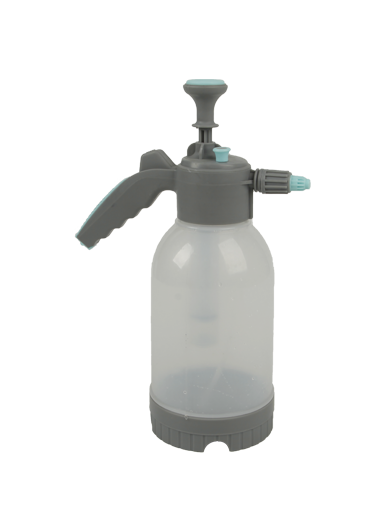It Is A Professional Sprayer Manufacturer Integrating Research, Design And Development.
+86-15824002009 Contact UsAgricultural backpack sprayers are essential tools used in farming, horticulture, and gardening to apply fertilizers, pesticides, herbicides, and other liquid treatments to crops, plants, and soil. Their design, which includes a comfortable harness and a spraying mechanism, allows farmers and gardeners to apply chemicals or water solutions efficiently over large areas. The durability and performance of these sprayers largely depend on the materials used in their construction.

1. What is an Agricultural Backpack Sprayer?
An agricultural backpack sprayer is a portable spraying device designed to be worn on the back, distributing liquids like pesticides, herbicides, or water. The sprayer is typically composed of several key parts:
Tank: Holds the liquid to be sprayed.
Pump: Pressurizes the liquid for efficient spraying.
Spray Wand: Directs the flow of liquid to the target area.
Straps: Allow the sprayer to be worn on the back for hands-free operation.
These sprayers are commonly used for small to medium-scale agricultural tasks like applying pest control, foliar feeding, or treating plants with fungicides.
2. Common Materials Used in Agricultural Backpack Sprayers
Agricultural backpack sprayers are typically made from a combination of materials to ensure durability, resistance to chemicals, ease of use, and comfort. Below are the key materials commonly used in different components of the sprayer:
a. Plastic (Polyethylene and Polypropylene)
Plastic is one of the widely used materials for constructing the tank and other parts of agricultural backpack sprayers due to its lightweight nature, corrosion resistance, and ease of molding into complex shapes. The two common types of plastics used are polyethylene (PE) and polypropylene (PP).
Polyethylene (PE): Often used for the tank, polyethylene is durable, resistant to agricultural chemicals, and able to withstand impacts. It also has a relatively low cost, making it ideal for the large volume needed in sprayers.
Polypropylene (PP): This material is commonly used for the pump, valve components, and other high-stress parts. Polypropylene is resistant to abrasion and can tolerate exposure to both acidic and alkaline chemicals, making it a suitable choice for various applications in agriculture.
Advantages of Plastic:
Corrosion-resistant: Plastic is not affected by rust or corrosion, ensuring longevity, especially when exposed to wet and humid conditions.
Lightweight: Plastics such as polyethylene are relatively lightweight, which reduces the overall weight of the sprayer, making it more comfortable to carry for long periods.
Chemical resistance: Both polyethylene and polypropylene are resistant to many agricultural chemicals, reducing the risk of damage to the sprayer components.
Disadvantages of Plastic:
Durability: While plastic is resistant to chemicals, it may not be as impact-resistant as metal, which could be a concern when the sprayer is dropped or exposed to rough handling.
b. Stainless Steel
Stainless steel is often used for certain components of the agricultural sprayer, especially the spray wand, nozzle, and other parts that come into direct contact with the chemicals. Stainless steel is known for its strength, resistance to rust, and ability to withstand corrosion from harsh chemicals.
Advantages of Stainless Steel:
Corrosion-resistant: Stainless steel is highly resistant to rust, making it ideal for use in environments where water, chemicals, and moisture are prevalent.
Strength and Durability: Stainless steel components provide additional strength, especially in areas like the spray wand, where pressure and chemical resistance are essential.
Long-lasting: The durability of stainless steel parts ensures a longer lifespan for critical components that undergo constant use.
Disadvantages of Stainless Steel:
Weight: Stainless steel components are heavier than plastic, which could increase the overall weight of the sprayer, potentially affecting user comfort during extended periods of use.
c. Aluminum
Aluminum is another material used in some agricultural backpack sprayers, particularly for the frame, pump housing, and other structural components. Aluminum is lightweight, resistant to corrosion, and can withstand exposure to various chemicals, making it an choice for the overall structure of the sprayer.
Advantages of Aluminum:
Lightweight: Aluminum is much lighter than steel, which reduces the overall weight of the sprayer.
Corrosion-resistant: Like stainless steel, aluminum is resistant to corrosion, ensuring that the sprayer’s frame and housing remain intact even after exposure to moisture and chemicals.
Affordable: Aluminum is relatively cost-effective compared to other metals, providing a good balance of durability and affordability.
Disadvantages of Aluminum:
Softness: While aluminum is corrosion-resistant, it is not as strong as stainless steel and may be prone to denting or scratching when subjected to heavy impacts.
We will provide you with the latest product
information as soon as possible
